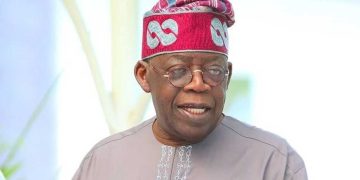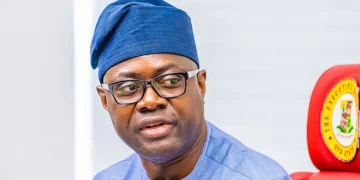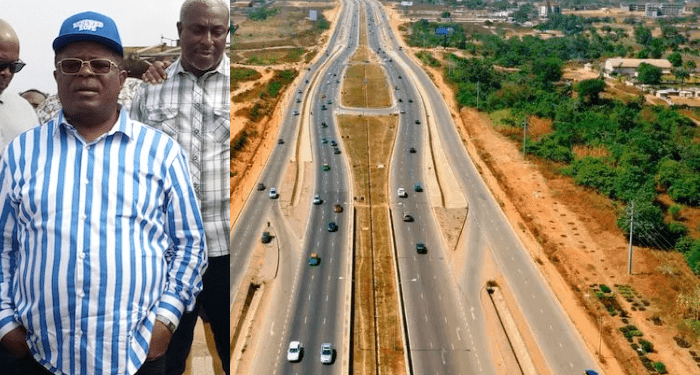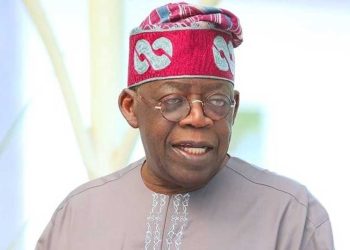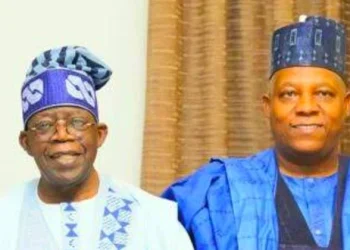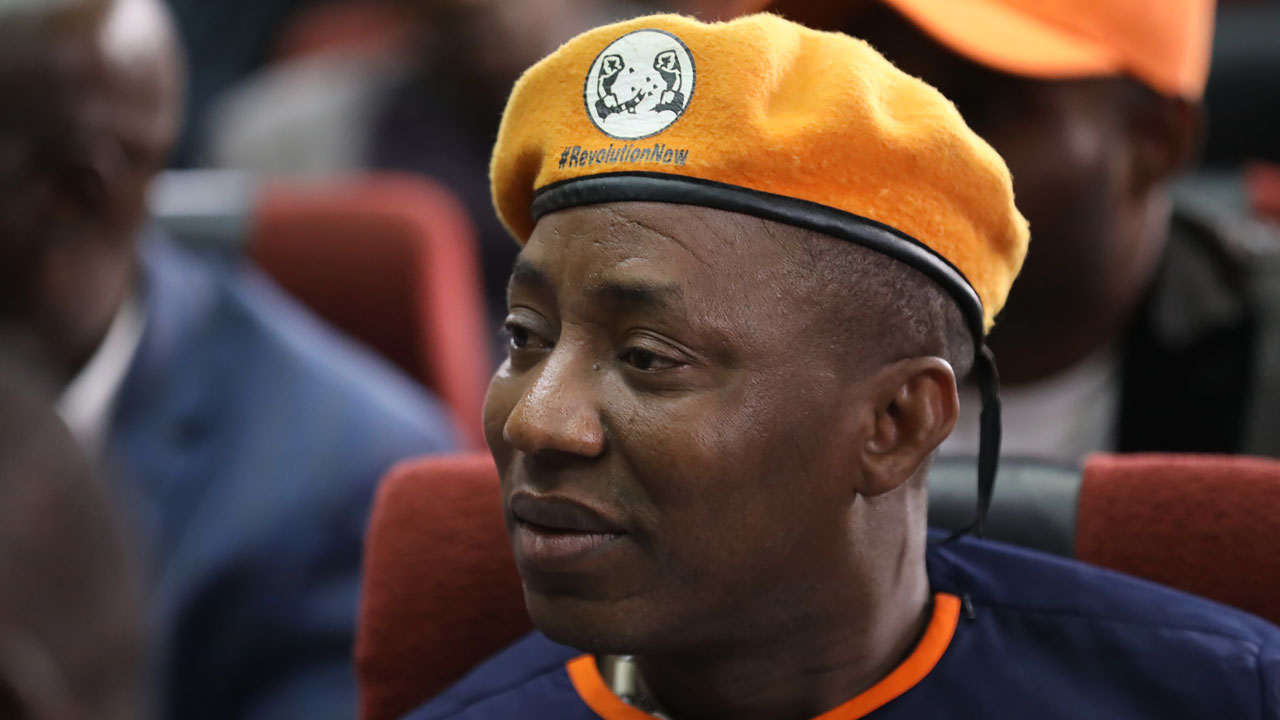President Bola Ahmed Tinubu has dismissed criticisms of the Lagos-Calabar Coastal Highway project, and other legacy projects of his administration, describing opponents of the initiative as uninformed about the project’s procurement structure and national significance.
Tinubu also said more funds would be committed to infrastructure development and urged Governors to collaborate with the federal government to align building approvals.
Speaking during the inspection and flag-off of new segments of key infrastructure projects, Tinubu said the government’s approach to legacy road construction, including the coastal highway and the Sokoto-Badagry Superhighway, is deliberate, transparent, and implemented in manageable sections — not as a single bulk contract as some critics have alleged.
The President clarified that only specific segments of the 750-kilometre Lagos-Calabar Coastal Highway have been awarded, with the completed 30-kilometre portion falling under Section I, a 47.7-kilometre stretch handled by contractors under the Federal Executive Council’s phased approval.
He said the road critics fail to grasp the methodical structure of the project, suggesting that those who complain about its cost should be prepared to pay tolls if they wish to use it.
Tinubu emphasised that no contractor has been awarded the entire length of the 750-kilometre coastal route. Instead, contracts are being procured in parts, to ensure accountability and efficiency.
He also pointed to progress on the Sokoto-Badagry Superhighway, a project initially envisioned during the Shagari administration nearly five decades ago, now revived as part of the administration’s Renewed Hope infrastructure agenda.
According to a statement by his Special Adviser on Information and Strategy, Bayo Onanuga, Tinubu said the superhighway spans seven states — Sokoto, Kebbi, Niger, Kwara, Oyo, Ogun, and Lagos — and is strategically important for agriculture, trade, industrialisation, and regional integration.
Citing specific milestones, the President noted that over 10 kilometres of a three-lane carriageway have been completed in Kebbi State, with work commencing on the second carriageway — the longest single stretch within the entire legacy infrastructure portfolio. In Sokoto, he said work had also started on a 120-kilometre three-lane section from Illela, with the first 10 kilometres already completed.
Tinubu also disclosed progress on the second carriageway of the Sokoto segment, while confirming that more sections of the highway are being prepared for procurement.
He reported encouraging progress on Section II of the Lagos-Calabar Coastal Highway, noting that more than 10 kilometres of the 55-kilometre stretch were already complete.
In the southern corridor, the President confirmed that work is ongoing in Cross River and Akwa Ibom states. He said he had directed relevant authorities to accelerate the design and procurement of additional sections to keep pace with the government’s rollout targets.
Tinubu also provided an update on the Trans-Sahara Trade Route, which he described as another strategic priority.
The route, which is under active development, will link Calabar to Abuja through Ebonyi, Benue, Kogi, and Nasarawa states — creating new commercial arteries across central Nigeria and beyond.
“I urge you, David, to ignore those critics; they lack understanding. If they find fault with the road or deem it too costly, let them pay a toll to use it.
“It is necessary to note that the Federal Executive Council approved our Legacy Projects to be procured, awarded and constructed in sections. The completed 30 km segment of the Lagos-Calabar Coastal Highway is part of the 47.7 km, six-lane Section I contract, not a wholesale 750 km contract, as some have suggested. No contractor has been awarded the entire corridor.
“Our approach has been systematic, transparent, and section-based. The Sokoto-Badagry Superhighway envisioned 47 years ago under the Shagari administration, is another legacy project we have revived. This corridor – spanning Sokoto, Kebbi, Niger, Kwara, Oyo, Ogun, and Lagos -holds immense potential for agriculture, trade, and industrialisation.
“It connects over 58 dams, vast arable farmlands, and trade routes to our West African neighbours and offers great promise for windmill energy generation. Construction is well underway. In Kebbi, we have completed over 10 km of the 258 km three-lane carriageway, and today we flag off the second carriageway. This section is the longest in all our Legacy Projects.
“In Sokoto, work has begun on the 120 km 2single-carriageway by three lanes from Illela. I understand that over 10km of this project is already completed. Today, we shall be flagging off the second carriageway of 120km with three lanes.
“Work is also at an advanced stage in this section. More sections are being designed for procurement and award within the whole length of the Sokoto-Badagry Superhighway. On my way here, I witnessed significant progress at Section II of the Lagos-Calabar Coastal Highway, with over 10 km of the 55 km stretch already completed.
“I am also pleased to report ongoing works in the Cross River and Akwa Ibom sections and have directed that more segments be designed and procured. The Trans-Sahara Trade Route, another visionary project, is advancing steadily. It will connect Calabar to Abuja via Ebonyi, Benue, Kogi, and Nasarawa,” he said.
On his call on States to work with the federal government on aligning building approvals, the President said proper approval alignment between subnational and federal governments will facilitate the construction of major roads and bridges across the country.
“I have directed the Minister of Works, David Umahi, and the Surveyor General of the federation to work more closely with the governors,” the President said.
Tinubu said aligning state approvals with the Federal Government will reduce the burden of compensation and delays in actualising people-oriented projects.
“Please, my dear governors, let’s work together. Don’t give planning approvals without collaboration with the Surveyor General and the Ministry of Works. I am appealing to you to realise the same development goal.
“Let me emphasise the ban by the Federal Government of Nigeria on any dredging within a 10km radius of all our Bridges nationwide. I appeal to all governors, relevant agencies, and security agencies to implement this ban immediately”, President Tinubu said.
The ceremony came five days after the President commissioned Phase 1 of Section One of the Lagos-Calabar Coastal Highway, also in Lagos.
He commended the Federal Ministry of Works, Messrs Hitech Construction Company Limited, Messrs Dangote Industries Limited, BUA and all contractors involved in the country’s road development. He said his administration is committed to building enduring infrastructure nationwide.
President Tinubu said he had directed accelerated design on the 4th Legacy Project of the Akwanga-Jos-Bauchi and Gombe corridor to enable procurement to start.
“Let me assure you that with God on our side, we shall complete these projects and deploy them for the economic benefit of our nation”.
Other projects commissioned by the President include Yakasai to Zalli Road, Kano State (CCECC), Shendam Bridge, Plateau State (Triacta), Kwanar-Hadejia Section II (82km), Kano/Jigawa States (CCECC), Jimeta Bridge, Adamawa State (Triacta), Ilobu-Erinle Road, Kwara/Osun States (IAC) and Cham-Numan Bridge, Adamawa State (CGC).
President Tinubu flagged off the following projects for construction: Section I Phase IB-120km of Sokoto-Badagry Superhighway in Sokoto State; construction of Section II Phase 2 B-258 km of Sokoto-Badagry Superhighway in Kebbi State; construction of Lagos–Calabar Coastal Highway (Section II)-55km in Lagos to Ogun State Border; rehabilitation of Zaria-Hunkuyi to Daya Road (Sections I, II & III) 152.67km in Kaduna/Kano States and reconstruction of Dikwa – Gamboru – Ngala Road – 49.55km in Borno State.
Also flagged off was the completion of the dualisation of the Kano – Maiduguri Road linking Kano – Jigawa – Bauchi – Yobe and Borno States; 100.95km, construction of Maiduguri Ring Road – 108km, construction of Kano Northern Bypass Road in Kano State, – 74km; construction of 7th Axial Road at Lekki Deep Sea Port, Lagos State to Ijebu-Ode, Ogun State– 25km by 6-lane and completion of rehabilitation of Lokoja – Benin road on rigid pavement.
Other roads are the dualisation of Oyo—Ogbomoso Road in Oyo State, 104km; the dualisation of Kano—Daura—Kongolam in Kano, Jigawa, and Katsina States, 264km –BUA Tax Credit; and the reconstruction of Bama–Banki Road in Borno State, 49.15 km Dangote Tax Credit.
The President thanked the “four wise men of the private sector”: Jim Ovia, Femi Otedola, Abdulsamad Rabiu, and Aliko Dangote, for contributing to Nigeria’s economy. He also commended the Minister of Works, Roland and Gilbert Chagoury, and Aigboje Aig-Imoukhuede.

Madukwe B. Nwabuisi is an accomplished journalist renown for his fearless reporting style and extensive expertise in the field. He is an investigative journalist, who has established himself as a kamikaze reporter.

